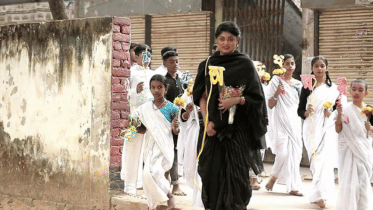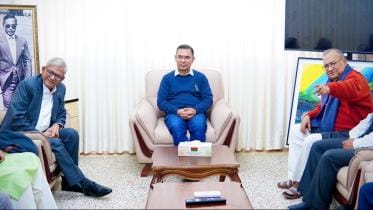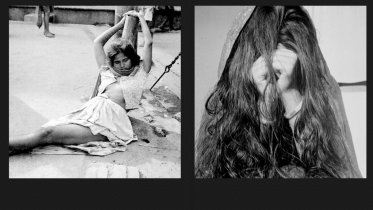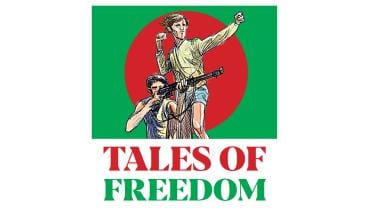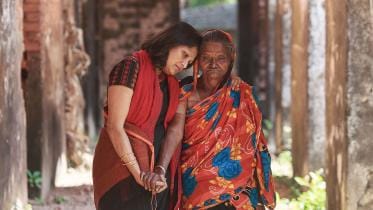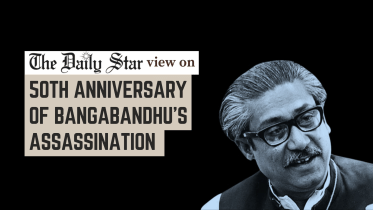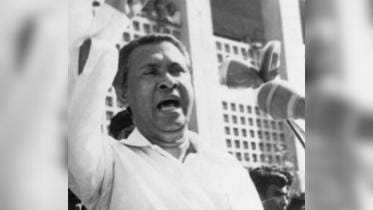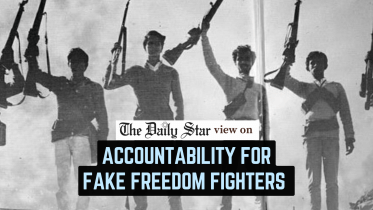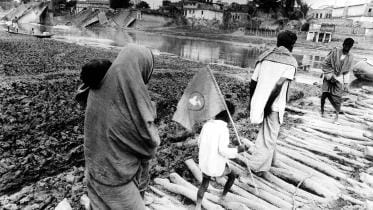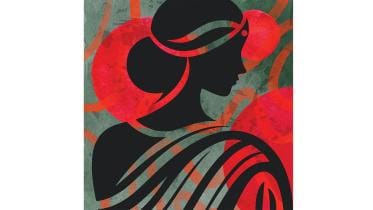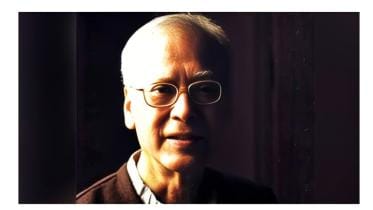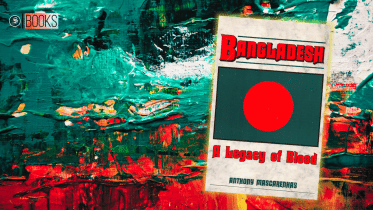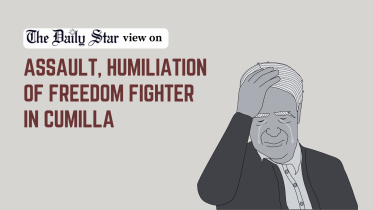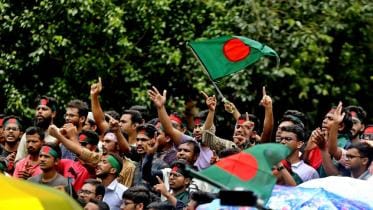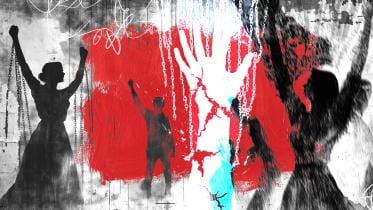Liberation War 1971
Liberation War tale highlights Language Movement in TV drama Amar Bornomala
A moving story rooted in the Liberation War and the spirit of the Language Movement is set to reach television audiences through the special drama “Amar Bornomala”.
20 February 2026, 13:02 PM
‘Without the Liberation War, Bangladesh would not exist’
Left-leaning alliance leaders meet Tarique Rahman; discuss law-and-order conditions and election
5 January 2026, 11:49 AM
When the Liberation War walked onto the stage
Munier Chowdhury, Syed Waliullah, Nurul Momen and Sayeed Ahmed were already testing the limits of expression through plays such as “Kabar”, “Bohipir”, “Nemesis”, “Kalbela” and “Trishna”. Politics haunted these works, but repression kept them from fully unfolding.
17 December 2025, 10:46 AM
The untold story behind 1971’s two most haunting photographs
Because the image was published, Naib Uddin’s life came under threat.
12 December 2025, 02:00 AM
Aburkhil: A sanctuary for freedom fighters
Along the quiet banks of the Halda in Raozan upazila of Chattogram lies Aburkhil, home to the country’s largest Buddhist community and, in 1971, an undeclared liberated zone. In those months of fire and flight, the village became both haven and stronghold, gathering fleeing families, exhausted soldiers, and an unlikely frontline of care and defiance beneath its canopy of trees.
30 November 2025, 18:31 PM
How Leesa Gazi’s work restores forgotten women’s stories from the Liberation War
Leesa Gazi, Bangladesh’s Oscar-nominated filmmaker, continues amplifying silenced women’s voices through storytelling that spans theatre, film, and literature. Her works like Birangona and A House Named Shahana reclaim erased histories, celebrating women’s resilience, resistance, and power across generations.
19 October 2025, 11:52 AM
Let our children sing and dance
Children are born with rhythm. Studies show that even six-month-old babies instinctively sway or kick to a beat.
25 September 2025, 09:00 AM
A tragedy that shaped the course of our history
August 15 set a precedent for future political violence and assassinations
14 August 2025, 18:30 PM
Birth centenary of Tajuddin Ahmad: The unsung leader of our Liberation War
Tajuddin led the nation during a bloody war with stupendous courage, determination, patriotism and exemplary leadership.
24 July 2025, 18:30 PM
‘The trial of the jail killing case should be reopened’
The Daily Star (TDS): We all know Tajuddin Ahmad as a leader, but how was he as a father?
22 July 2025, 18:00 PM
Bangladesh demands $4.52 billion in financial claims from Pakistan
"We raised the historical unsettled issues with Pakistan, including a formal public apology," says foreign secy
17 April 2025, 13:16 PM
An unfinished struggle: Democracy, identity and reform
The interview explores the evolving narrative of democracy in Bangladesh since 1971.
6 April 2025, 02:00 AM
Take action against fake freedom fighters
Corruption charges against ministry officials, others must be investigated
27 March 2025, 07:34 AM
The road to liberation: March 1971 and the years that led to it
The 1971 Liberation War was the culmination of a long struggle for a democratic, secular, and egalitarian society.
26 March 2025, 02:00 AM
The Birangona, un-buried
What matters when there's a Motherland to defend?
14 March 2025, 18:00 PM
An ode to Prof Anisur Rahman
Professor Anisur Rahman was the founding father of the “Two Economies” theory, which formed the intellectual foundation of Bangladesh’s Liberation War.
16 January 2025, 04:00 AM
‘Bangladesh: A Legacy of Blood’ is a flawed but essential critique of the founding fathers of our nation
Review of ‘Bangladesh: A Legacy of Blood’ (Hodder and Stoughton, 1986) by Anthony Mascarenhas
31 December 2024, 16:00 PM
Humiliation of a freedom fighter is unacceptable
Those responsible should be held accountable
24 December 2024, 16:02 PM
The spirit of 1971: Reflections on liberation, aspirations, and modern challenges
The spirit of 1971 lives on, and it is up to the present generation to ensure that its promises are fulfilled.
21 December 2024, 02:05 AM
Our Victory Day and the questions of equality, justice, and human dignity
Bangladesh's hard-won independence, achieved through the Liberation War in 1971, remains the most defining political event in our history.
16 December 2024, 02:00 AM



